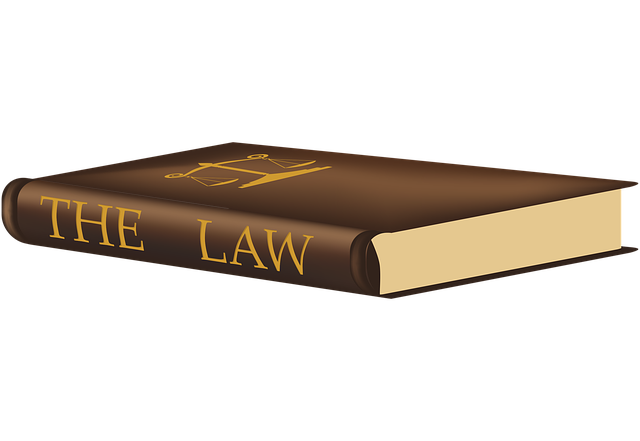Regulatory fraud laws target intentional deception. Plea bargaining offers defendants control over outcomes but waives trial rights and cooperation. Pros include reduced charges and sentences, cons involve limiting defense presentation and future career prospects. Effective legal representation balances plea bargain pros and cons for defendants while protecting long-term interests.
Regulatory fraud laws are crucial tools in fighting business misconduct, protecting consumers, and ensuring fair markets. This article delves into the intricacies of these laws, focusing on plea bargaining—a key strategy for resolving cases. We explore the scope of regulatory fraud, define essential terms, and analyze the advantages and disadvantages of plea bargaining from the defendant’s perspective. Understanding these aspects is vital for both legal professionals and business leaders to navigate potential legal consequences effectively.
- Understanding Regulatory Fraud Laws: Key Definitions and Scope
- Plea Bargaining: Advantages and Disadvantages for Defendants
- Navigating Legal Consequences: Post-Plea Bargain Implications
Understanding Regulatory Fraud Laws: Key Definitions and Scope

Regulatory fraud laws are designed to protect the integrity of various industries and ensure compliance with specific regulations. Understanding these laws involves grasping key definitions and their scope. Fraud, at its core, refers to intentional deception for personal gain. In the context of regulations, it means misrepresenting or concealing information to evade or bypass set rules and standards. For instance, a company might inflate its financial reports to meet regulatory thresholds.
Plea bargaining plays a significant role in navigating these laws, offering both pros and cons for defendants. During all stages of the investigative and enforcement process, a defendant may choose to bargain, agreeing to plead guilty to a lesser charge in exchange for a reduced sentence or even the complete dismissal of all charges. However, this strategy has drawbacks; accepting a plea deal might still result in fines, imprisonment, or damage to a company’s reputation. A competent general criminal defense attorney can help assess these outcomes and advise clients on the best course of action, aiming for the most favorable resolution possible.
Plea Bargaining: Advantages and Disadvantages for Defendants

Plea bargaining is a critical strategy for defendants facing regulatory fraud charges, offering both advantages and disadvantages that can significantly impact their case outcomes. One of the key benefits is its ability to provide a measure of control over the outcome. Through plea bargaining, defendants can negotiate a plea agreement with prosecutors, potentially leading to reduced charges or a lighter sentence in exchange for admitting guilt. This strategy allows individuals to avoid the complexities and risks associated with trial, which may yield more severe consequences.
However, there are potential drawbacks. Accepting a plea deal means waiving the right to a trial, thereby forgoing the opportunity to present a defense and challenge the prosecution’s case. This can be especially detrimental if the defendant believes they are innocent, as it limits their chance of achieving an acquittal. Moreover, plea bargains often require defendants to cooperate with investigators throughout all stages of the investigative and enforcement process, which may have implications for future interactions within the philanthropic and political communities. Despite these considerations, strategically executed plea bargaining can lead to remarkable outcomes, allowing individuals to move forward while ensuring they face consequences for their actions.
Navigating Legal Consequences: Post-Plea Bargain Implications

Navigating Legal Consequences: Post-Plea Bargain Implications
When a defendant agrees to a plea bargain, they are essentially trading a negotiated charge or sentence for the avoidance of a trial. This strategy can offer several advantages, such as reduced jail time and a faster resolution. However, it’s crucial to weigh these benefits against the potential drawbacks. A plea bargain may limit the defendant’s ability to present their story to a jury, potentially hindering their future career prospects in white-collar defense. Moreover, once the agreement is accepted, any attempt to overturn or modify the terms becomes significantly more challenging.
The implications extend beyond the immediate legal consequences. For businesses and respective industry professionals, a plea bargain can lead to reputational damage and regulatory scrutiny. Achieving extraordinary results in such cases often requires robust legal representation that understands the intricate balance between negotiating a favorable plea deal and protecting the client’s long-term interests.
Regulatory fraud laws are essential tools in combating dishonest practices within various industries. By understanding these laws, their definitions, and the implications of plea bargaining, individuals can navigate legal consequences more effectively. While plea bargaining offers advantages like reduced sentences and quicker resolutions, it also comes with drawbacks such as potential stigma and long-term legal repercussions. Weighing these plea bargain pros and cons for defendants is crucial in ensuring justice is served while considering the best course of action within the scope of regulatory fraud laws.






